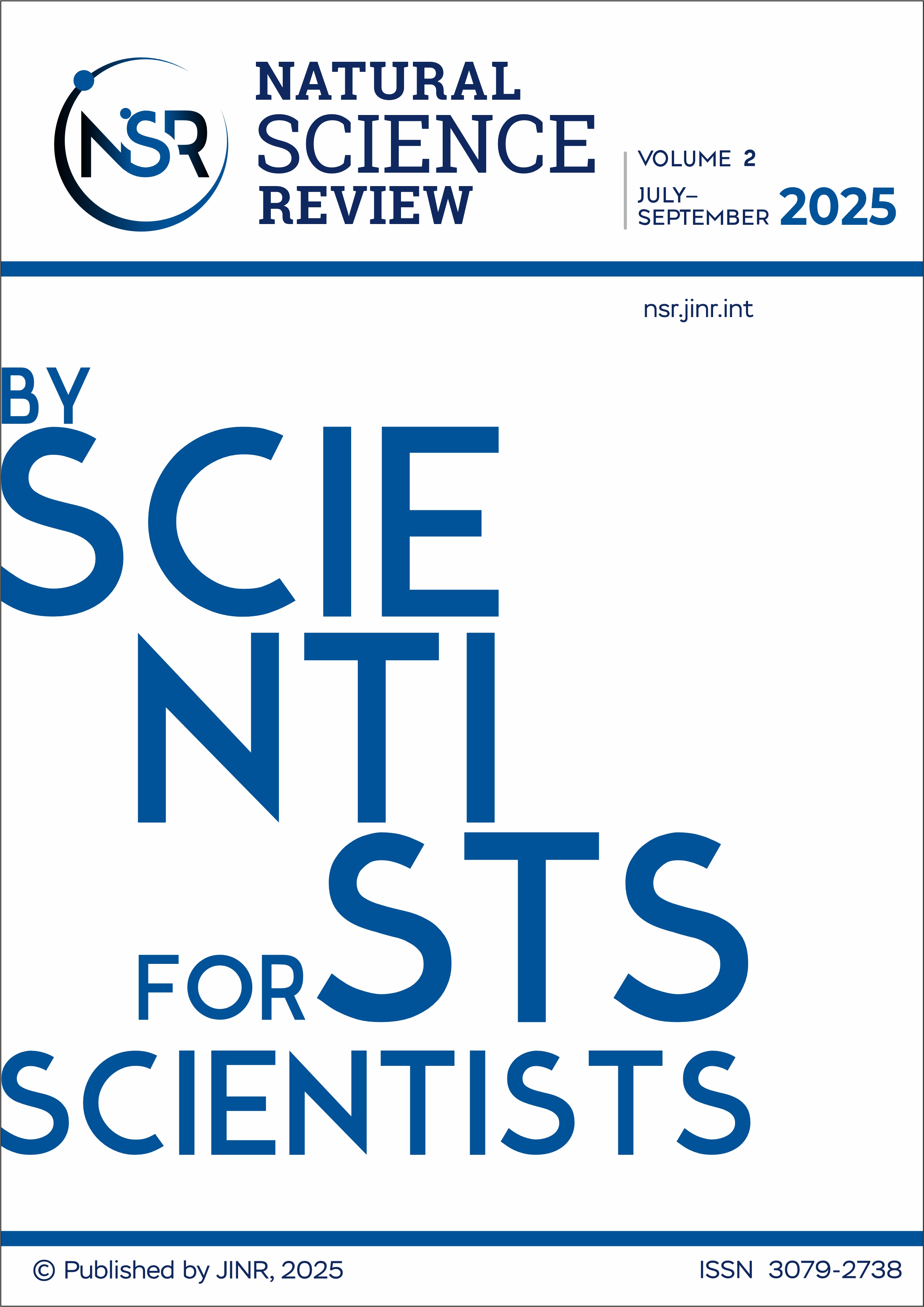1. Reviewing is carried out according to the publication ethics accepted in the Natural Science Review journal.
2. The journal reviews all submitted materials that correspond to its topic in order to assess them. If the received material does not correspond to the stated topic of the journal or the journal's policy, the article will not be considered, and the editors will immediately notify the author of this.
3. If the manuscript fits the journal, but needs technical or linguistic editing, it is returned to authors for correcting. The authors will not need to resend the manuscript, but will only need to upload the corrected file(s) to their application.
4. Book reviews, reviews of scientific events, obituaries, archival materials, letters to the editor, and other similar materials are not to review. The decision on their publication is made by the Editorial Board on the recommendation of the editors.
5. If the manuscript is acceptable for reviewing, the scientific editor sends the manuscript to appropriate reviewers, and also informs the author and the executive secretary of the editorial board.
6. The number of reviewers working with one article is not limited. At least two independent experts are involved in the examination.
7. Both members of the journal's editorial board and third-party reviewers are engaged in reviewing. As a rule, they have a candidate or doctoral degree, with sufficient academic experience in the scientific area stated in the article.
8. The reviewer should not have a conflict of interest with the author.
9. The editorial team selects another expert if the reviewer refuses to evaluate the manuscript (including a conflict of interest). The editorial team has the right to appoint additional experts and/or conduct an independent examination.
10. In each individual case, the editorial team determines the deadlines for reviewing manuscripts creating the conditions for the fastest publication of articles. At the same time, reviewing should not exceed 2 weeks after the reviewer agreed to review the article.
11. The review includes the following issues:
- the article's content corresponds with the topic stated in the title;
- – the advisability of publishing an article taking into account modern scientific achievements and previously published publications;
- accessibility to readers in terms of language, style, organization of the material, clarity of tables, diagrams, figures, and formulas;
- what exactly are the advantages and disadvantages of the article, what corrections and additions the author should make.
12. The reviewer provides the review at author's discretion in any form.
13. The reviewer can recommend one of the following:
- accept the article for publication without corrections;
- accept the article for publication with minor corrections;
- send the article to the author for correcting;
- reject the article (only with an explanation).
14. The scientific editor considers the review and makes one of the decisions:
- accept the article for publication without corrections / or with minor corrections;
- send the article for additional review;
- return the article to the author to correct according to the reviewer's comments;
- reject the article (only with an explanation).
15. The scientific editor sends the author reviews of the submitted materials.
16. If the review contains recommendations for correcting and improving the article, the scientific editor suggests that the author take them into account when making a new version of the article or refute them (briefly but in detail) in a reasoned way (partially or completely). The article modified by the author is sent for re-review. When resending, authors should provide a version of the manuscript, which highlights all the changes, and a list of changes made to the manuscript.
17. The scientific editor has the right to reject the article after a month, if the author has not responded.
18. The review process is completed when the editors have enough information to make a decision. After the scientific editor decides to publish the article, he informs the author and the executive secretary of the editorial board about this and sends the article to the technical editor.
19. If necessary, the scientific editor has the right to discuss an article with the journal's editorial board.
20. All reviews are kept in the editorial office for at least five years. Copies of the reviews are sent to specialised bodies of the JINR Member States upon receipt of a corresponding request to the editorial office.


